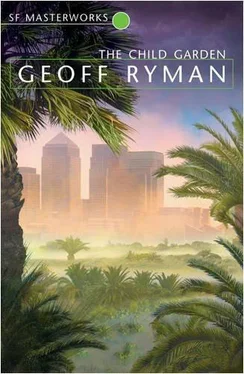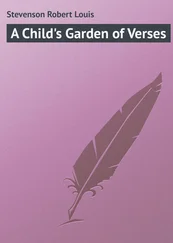Milena remembered a dream.
She was weightless in space, strapped to the bed to stop her drifting away. A headband held her down to the pillow.
Out of that uneasy sleep, out of the light and the silence, Heather the Reader of Marx seemed to wheel her way towards Milena. Heather grinned in her wheelchair, amused at herself. Heather was wearing the robes of Virgil.
‘Look who’s here to see you,’ Heather said, beaming behind her pebble-thick spectacles.
There was a voice in the light, in the silence. It spoke without words, but Milena recognised it. In the dream, she felt tears in her eyes, felt herself held in a great warm hug. Without words, the voice seemed to tell her to do Dante in her own way. It was giving her permission.
Milena saw Dante walking along the Embankment Gardens. His eyes, his nose, his chin, were all fierce, dagger-like. He had been made political by the events of his age. He was a Vampire of History. He was going to the Zoo Cafe. He met the Animals of the Zoo, and saw mirrored in their eyes his own greed, his own rage, his own cunning. He climbed up the steps, and the sun rose over the roof of the Zoo; and the Sun was God. Rolfa’s music said it was so.
And Dante moved through steam from the coffee tureen to a bench, and sat across from Cilia, and she judged him. Prissy. Obsessive. Severe, she seemed to say. But she was like a spectre, her high voice ghostly rather than womanly. This was a Virgil who was neither man nor woman. There is a place she said, where there are spare clothes. And she led Dante through a gate, into the Graveyard, and the gate closed and locked. They fought their way through the darkness and the souls of the dead that looked like old and withered clothes, until they found a light.
Rolfa sat singing at a desk. Lucy was with her, swinging her feet.
We’re Beatrice, said the voice.
It really is you, isn’t it, Rolfa? You really are here with me. Who else could orchestrate the Comedy? Who else could come marching back from the dead down a highway in my head? It’s a highway made of scar tissue and it links me to the Consensus. And that’s where you are, isn’t it love? You’re still there somewhere, singing in the dark.
Milena went up and Milena came down and Milena did the Comedy in a different way, amid the tunnels of Leake Street and the scaffolding of the Zoo. Milena brought the Comedy down to earth.
CHAPTER FOURTEEN
Hop Skip and Jump
(Psychodrama)
Milena fled from Thrawn. She moved out into the Slump, the vast estuary between London and the sea. In a sense, she was also fleeing from herself.
She remembered a boy singing. He stood on the flat, polished prow of a boat, pushing the boat with a long punt pole. He was tall and lean and the muscles on his legs looked like polished driftwood.
Mary oh lay ha
Mary oh lay ha hoo
Mary oh lay ha
Mary oh I love you
Milena was half asleep with relief at her escape. She would live out in the Slump, where no one would expect her to live, for three months. Then she would go up into space.
Milena looked at the ripples of sunlight lazing on the surface of the coffee-coloured water. Her eyes sagged shut and her head nodded, and she listened to the water gurgling slightly against the overlapping planks of the punt. She heard the crackle of reeds as the boat slid between them, where the channel narrowed.
There was a flutter of wings. Milena looked up. A moorhen, black with a red face was flying away. There was a thrashing sound in the water. A buffalo was dancing sideways away from them, startled. He looked at them with a mixture of timidity and outrage, water streaming from its muzzle.
There were other buffalo, amid the reeds. A child’s voice, hidden somewhere, called la la la la la la. Slim shadows darted between the high reeds, hidden excitedly. As the shadows ran, the silver tops of the reeds waved in the air. Overhead, the herons circled.
‘The buffalo, they can take the deeper water,’ explained the boy. ‘Out where you are, there is more shallow farming.’
He pushed their boat out of its narrow back channel, up and onto a hillock of drying reed and water grasses.
‘Ach!’ he exclaimed in disgust. ‘It hasn’t rained. Already, all my shortcuts are going dry.’
He hopped out of the punt and dragged it up and over the bank. Where his feet sank into the mud, bubbles of gas from rotting reeds escaped.
‘Is it a problem, the lack of rain?’ Milena asked.
‘It soon will be,’ he said.
The boat oozed its way down mud, back into water, and he pulled it, still wading, between two houses, screened by high panels of woven reed. He leapt back into the boat, and pushed with a pole and the punt floated into a wide, straight canal.
Reed houses lined the canal on both sides, all the way to the horizon. Air pollution made the houses in the distance glow golden as if in sunset light.
The houses were shaped like loaves of bread, with tufts of uncut reed bristling at the top. They rested on firm foundations of Coral, and a low wall of Coral lined the canal. Hens ran through the dust of the bank. Women knelt over the canal filling kettles with water. In the right hand side of the channel small boats crowded together, stern to prow, low in the water. They struggled against the current, the children in them rowing furiously, heading upstream towards the Great Barrier Reef. The Reef kept the waters out of Central London. Beyond the gates of its locks lay the markets of the Pit.
The canoes and punts were all on the razzle, taking private merchandise for sale. They were full of water cabbages, water cress, dried reeds, or the product of dried reeds, the soft new textiles made from stripping and drying water plants.
‘Lovely Tarty Woman!’ a woman called to Milena, grinning. She knelt in the front of her boat. Jammed securely in the narrow boat was a wok over a charcoal stove. ‘Lovely water chestnuts,’ the woman called, ‘toothy cabbage, all crisp, radishes, onions, slump, all swift fried now. You hungry?’
Milena made herself smile as she shook her head. She had been told that people in the Slump would call her a Tart, and would mean no insult by it. Party Members were still a rarity out in the Slump. That was why the new Party house had been built.
The boat boy took another shortcut, between houses. An angry Tyke stood up and shouted at him. The boy smiled and waved and called him Sir and Senior. The punt slipped past back gardens, carefully demarcated with reed fences. Water cabbages bobbed in rows; edible algae formed a smooth impenetrable coating over the water, like green ice. There was the chugging of generators on high Coral islands, and wires strung over the back gardens, feeding power to the houses.
The boat moved up another channel, into a wide expanse of water. It was as blue as the sky and looked like a lake, wind skittering over its surface. There were rows of paddle steamers, a hazy blue in the distance. They lined up in the main channel between the groaning buoys. Milena could clearly hear people talking on them and the steady whoosh whoosh whoosh of their great twin wheels. Between the wheels, each boat had a chorus of black funnels rising up like church organs. The nearest steamer was laden with Slump, all of it in layers like peat cut out of the earth.
Across the lake, near the reeds on the other side were flamingoes. They moved in fits and starts, in pink and while currents. The people of the Slump loved and protected them. It was storks and herons they hated. Milena narrowed her eyes and could just barely see the tubby pink bodies perched on long legs, and the elephant-trunk necks reaching down, lifting up.
‘This is L’Etoile,’ said the boy. ‘Different water roads spread out from here to all the different Estates. We got the hard farming, the cabbages and the like, we got the soft farming, the small birds and animals, we got the Slump itself. We go past the Slump, past the Soft Farmers.’ He smiled, a gap in his teeth, his vividly Rhodopsin-purple face lumpy with acne.
Читать дальше












